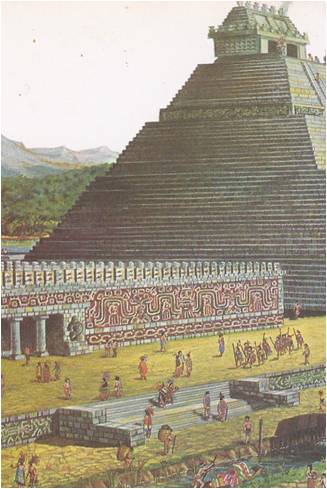Even though you are familiar with the story of the American Revolution, perhaps you do not realize that only nine short days at Christmas time in 1776 changed the course of the English colonies’ fight for freedom. Within that short space of time, General Washington’s ragged, dwindling army captured the hired German troops at Trenton, New Jersey and routed a British force at nearby Princeton. To win such surprising victories and to keep the American Revolution from collapsing took the devoted leadership and military skill of General George Washington. It took patriot soldiers whose term of service had run out …
Read More »Tag Archives: Haiti
Democracy in Latin America 1811-1823
DURING THE years when Napoleon and Spain were at war, Spain’s American colonies began their long fight to win independence from the mother country. Some of the earliest revolts were quickly defeated. The leaders were executed, but their deeds were remembered. In the early 1800’s, the leader of an unsuccessful revolt in Bolivia said, as he faced death: “I die; but the torch which I have lighted no one will be able to extinguish.” Francisco Miranda won fame for his unsuccessful revolt in Venezuela in 1811 and 1812. In Mexico, an old priest named Miguel Hidalgo, who wanted freedom for …
Read More »Adventures in the New World 1519 – 1620
“I DID NOT come to till the soil like a peasant,” said Hernando Cortez. “I came to find gold.” His words echoed the thoughts of almost every Spaniard in the New World. The discovery of the sea route to the West had set off a great treasure hunt. Colonizing and slaughtering, building and plundering, the gold-hungry Spaniards won a Spanish Empire of the West. Conquistadores‚ they were called — the conquerors. None of the treasure-hunters was more cunning or ambitious than Hernando Cortez‚ who came to the island of Hispaniola in 1504. It was not until 1519 that the governor …
Read More »A New World and a New Sea 1492-1522
ALONG THE DUSTY SPANISH road leading north from Granada plodded a mule. On its back, bouncing and cursing his luck, sat a glum Italian sea captain. Four years before, Captain Cristobal Colon — the English would call him Christopher Columbus — had come to Spain on horseback, like a gentleman. He had been received at court, granted audiences with King Ferdinand and Queen Isabella and invited to describe his daring plan to sail west across the Ocean Sea to India. Royal advisers had asked to study his maps and the charts on which he had plotted a course and he …
Read More »


